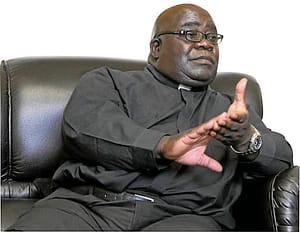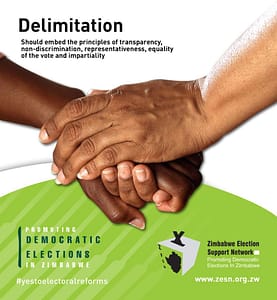Tinokumbira kurarama, as Dembo rings true in Tinashe Gumbo’s life

Lenard Demo
… my emotional experience with Mutadzi Ngaaregererwe
By Tinashe Gumbo
In this article, I review Leonard Dembo’s Mutadzi Ngaaregererwe song, off the album Tinokumbira Kurarama of 1993. Reader, be patient with me as I do so via my own personal experience with that song. I also briefly revisit Dembo’s thematic area of forgiveness before I reflect on Mutadzi Ngaaregererwe. My favourite songs are Zii Zii, Gire and Paw Paw. However, when I deeply reflect on my relationship with God, my relatives and friends, Mutadzi Ngaaregererwe (thereafter called Tinokumbira Kurarama), becomes my prayer song. Each time I listen to the song, I begin to regret about all my failures in life, my weaknesses as a human being, my limitations spiritually and my terribly sinful life. Therefore, for me, Tinokumbira Kurarama is not just a song per se. It is my deep prayer for forgiveness, a healing song during my physical illness moments and indeed one that has kept me going in the context of a “deadly” disease that I have lived with for the past couple of years.

Contextual Background
In 1993, we used to sing Tinokumbira Kurarama as we were doing “Maghalie” (gulley reclamation programs) in Mberengwa. Two people always come to my mind whenever I listen to this song, as they claimed to know every word in that “new song” then. These are, my daughter Svorai Gumbo (Makwangwa) and my friend Piason Sigauke. I did not know that nearly three decades later, the song would guide my spiritual and emotional life.
Some couple of years ago, I was officially diagnosed of some “almost deadly” disease. I am not even comfortable to mention the disease by name because I hate it with passion. It took the lives of my two role models, Tongai “Dhewa” Moyo and Morgan Richard Tsvangirai. I witnessed the suffering of these great people and eventually their deaths. This troubled me as I knew that I would one day follow suit. I was down spiritually and physically. Had it not been for my ever-supportive wife, Angela, I would have lost the fight, but today, here am I, as fit as a “railway line”.
Tinokumbira Kurarama became my Prayer

I reflected deeply about the song during the climax of my bad health situation. I relegated myself to a terrible sinner. I saw myself as a sinner, because I failed to accept the new reality. I further regarded myself as a sinner because of my failure to honor my Lord when I was still fit and healthy. I felt that I had not done enough for my Lord in response to everything he had done for me- a good wife, children, education and loving relatives and friends. Yet, my days on earth were almost “numbered”, at least according to science. Indeed, my relatives and friends felt for me. I remember one of my relatives calling to check on me and was physically crying over the phone. She was blunt as she said “now that you will be dying soon, what will happen to your young kids and wife…dai Mwari vapindira”. Of course, she was genuine in her lamentation and I did not take any offense against her as science was the basis of her conclusion.
I resorted to Tinokumbira Kurarama for strength. I listened to the song several times a day on my computer. It would ring in my mind for the whole day. I prayed for life. I really needed to survive, at least for my young family. I wished to see my kids grow. Tinokumbira Kurarama kept me going as I strongly believed that this was the only moment for me to resolve all my outstanding issues with my Lord, let alone with my relatives and friends. Let me leave it here Reader!

Dembo and Forgiveness
Dembo valued forgiveness in his life, as evidenced by his work. We have already reviewed Kangamwiro in our previous articles but there are a lot more songs that carry the message of forgiveness. Dembo did not hesitate to forgive and to request for forgiveness in his songs. Remember the song, Sori, off the Singles Collections Volume 3 and many more. Tinokumbira Kurarama is, for me, the climax of Dembo’s theme of forgiveness. He was informed by theology but also science as he composed and sang on forgiveness. I will not discuss the meaning of forgiveness as we covered it in our previous articles. However, just to refresh your mind, it is all about letting go grudges and bitterness (Mayo Clinic, n.d.). Biblical meanings were also shared before, where God’s grace becomes the centre of the story in the context of one’s sinful life.
Theological Basis for Forgiveness
The first thing to note in the theology of forgiveness is that humanity is in fact in need of this grace from God. Forgiveness is necessary because transgressions exist in us collectively but also individually. This existential human reality of sin, with its roots and branches spreading all over our generations has infected all things including our lives. After all, we can look to examples throughout the Bible of people forgiving one another and reap great inspiration from it. Joseph forgave his brothers for selling him into slavery. Daniel and Jesus showed love to their enemies, in the latter case, even to the point of death. Dembo was convinced by this theological base.
Scientific Basis for Forgiveness
Sociologists, medical experts and psychologists have also added their voice on the benefits of forgiveness. By embracing forgiveness, one can also embrace personal peace, hope, gratitude and joy. The Mayo Clinic (n.d.) lists various benefits of forgiveness as follows: healthier relationships; improved mental health; less anxiety, stress and hostility; lower blood pressure; fewer symptoms of depression; a stronger immune system as well as improved heart health. Dembo embraced the science of forgiveness and pushed it in his messaging especially in Tinokumbira Kurarama.
A Closer Look at Mutadzi Ngaaregererwe
The song is carried by the album Tinokumbira Kurarama of 1993 with other songs being Chitsidzo, Funga Zuva Rimwe Pagore and Shamwari Warova (also known as Madhiri). Mutadzi Ngaaregererwe is also known as Tinokumbira Kurarama among the Dembo fans. Tinokumbira (we request) is in the plural meaning that Dembo is not alone in this appeal. Kurarama (to survive), shows that life is at the centre of the request as it might be under some serious threats. A request seems to be directed to some deity whom I believe to be God himself in this case.
On Mutadzi (sinner) Ngaaregererwe (should be forgiven), Dembo seems to be talking about a third person who may be someone else. However, along the way, this “sinner” becomes Dembo himself. The title itself, does not specify the “forgiver”. It is presented as a passing comment to say “a sinner should be forgiven” with no further detail on the forgiver.
In the song title, there seems to be some hidden consequences of being forgiven. As the main body of the song will show, once forgiven, one becomes a survivor. One becomes cleansed of sin hence will survive both physically and spiritually. I would not want to venture into the possibilities of this song being motivated by Dembo’s personal life at that moment. Today, I zero in on my own experience with the song.
Line by Line Analysis of Tinokumbira Kurarama
- Ndingabude seiko mune zvakaipa kunze kwekunamata ndiko kuti ndirarameee x2
Dembo tells us that he is deep into sinful life just like any other humanity born out of Adam and Eve. However, he wants to come out of that life. Dembo quickly acknowledges that only prayer can bring him out of this undesirable life. But there is a positive and desired consequence to that, once he pulls himself out of such life, he will survive. Whether this was physical survival or spiritual, Dembo does not take time to explain to us. There is no other way of coming out except through prayer, is the main message here. Reader, please note that Dembo is using first person singular pronoun hence he might be referring to himself alone in this line.
- Ndingapunyuke seiko mune zvakaipa kunze kwekunamata ndiko kuti ndirarameee x2
In Mberengwa, “kupunyuka” is to rescue oneself from a life-threatening situation. Panenge pasina kuchipa! It is a forceful act, away from a tight situation. Dembo tells us of his situation which he describes as a tight one. He has realised that he needs to rescue himself out of the situation and he further reiterates that only prayer is the facilitator of his freedom. Once you rescue yourself, you become free. Dembo sticks to first person singular pronoun in this line.
- Pane uya wandaifungira mweya wakaipa iye akanditadzira, ndokumbirazve ararameee x2
In almost similar fashion of his call in Kangamwiro, Dembo appeals for the survival of “that other person” he has wished badly in life. He confesses that he has wished serious consequences to that person but now he prays for his or her survival. First person pronoun is maintained.
- Ndiri Mutadzi panyika, anochiva nekuuraya zvisakanditadzira, ndokumbirazve ndichenesweee x1. Ndiri Mutadzi panyika, anochiva nekuuraya zvisakanditadzira, ndokumbirazve ndirarameee x1.
Now Dembo becomes specific about his real being-a sinner. He indicates that he is a terrible sinner who is lustful and a killer of “things” which are innocent. These things are not defined by name in this line, but certainly not human beings. Maybe, the various creatures we feed on as human beings are the “things” being referred to here. In the first line, he appeals for his cleansing from these sins while in the second line he calls for his survival. Although Dembo still uses first person pronoun up to this point, this could also apply to all human beings who are lustful and kill to eat many creatures.
- Ndiyeka Harusvava anochema zvomurwadza, tendeukai mutarise, ndokumbirazve ararameee x1. Ndiyeka Harusvava anochena zvomurwadza, tendeukai mutarise, ndokumbira ngaararameee x1.
A new character is introduced in these two lines, “Harusvava”. We are not told if it is a He or a She but what is clear is that Dembo appeals to the deity for the survival of this person. He or she must have been a special person in Dembo’s life. We are told of his or her struggles. We are told that “anochema zvomurwadza”, and Dembo prays for his or her survival. This could be any other person known or unknown to Dembo, but who deserves God’s grace and favor. Dembo could have said more about this person as we are left guessing as to his or her identity and situation that requires God’s grace.
- Ndino reurura ini reurura, reurura ini reurura, ndino reurura ini reurura, kuti ndirarameee x1.
Forgiveness does not only come from nowhere. One has to first confess of his sins in order to deserve forgiveness. In this line we see Dembo confessing and indeed, reiterating his confession. He repeats the word “reurura” six times. The word means confession. Dembo actually indicates that he is confessing in return for life. It becomes a condition for his survival.
- Vachauya here Baba? Riiniko? Vachauya here Baba, kuzotinunura? Muchauya here Baba? Riiniko? Muchauya here Baba, …mukati mehondo… Variko here Baba? Varipiko? Vachauya here Baba kuzotinunura….
In these lines, Dembo raises many questions about the availability and responsiveness of the “Father” whom I believe to be God himself. He appears to be losing patience in these lines. He is now doubting if God would come to rescue “them” in a more timely manner. He is now using first person plural. It is now beyond him alone but a collective issue, which he describes as “hondo” (war). It must have been a terrible situation, one which called for an urgent intervention by God. Dembo is burning inside his heart for the sake of his life and that of “others”. This is the climax of Dembo’s prayer in this song. He is now a bit pushy for things to happen. He has done all- he has confessed and prayed for the “sinner”, and he now expects the results. In the first lines, he is directing his question to someone else asking if the “Father” would come to rescue “them”. However, later on, Dembo directs the question to the “Father” himself asking him as to when the later would come.
A Word on the Guitars
After pronouncing the above lines, Dembo then concentrates on showcasing his skills with regards to the instrument arrangements. He only restates the same words later on after the guitars and drums had “talked”. For me Tinokumbira Kurarama is very rich in many things. Besides being an emotional prayer that has kept me going, Dembo and his team manifested their skills in handling the guitars. The lead guitar is excellent, the rhythm guitar is excellent, the bass guitar is excellent and indeed, the drums were well cooked while the vocals are a marvel to listen to.
What I learnt from Dembo
- I got to know the meaning of forgiveness when one is in a terrible situation. I further learnt that forgiveness matters in such situations.
- In life one has to become forgivingly fit in order to resolve one’s issues with God.
- Forgiveness involves addressing one’s inner part of life.
- It is important to find meaning in one’s suffering.
- One can develop a forgiving mind by standing in for others. Being empathetic in prayer.
- There is need to first forgive oneself before requesting for God’s favour. Confession is also critical in the process.
I never stop learning from Dembo’s work.
In Conclusion
I had planned to do the review of this great song sometime later this year, but Angela sent me the song via WhatsApp as I was going to Libreville, Gabon for the just ended Africa Climate Week last week. Angela knows how to manage my emotions at different moments. She manages me through utilisation of various categories of Dembo songs. Thus, when she shared this one, I overplayed it for over a week and I finally decided to share my story at this particular moment. As I watched the waters of the Atlantic Ocean, listening to Tinokumbira Kurarama, I re-lived my situation of some seven years ago when I was almost down with that disease, that one I hate with passion. The song reignited my zeal for my reconnection with the Lord through my works. At least I have a song that I listen to whenever I am in deep reflection of my relationship with God. Tinokumbira Kurarama remains a special prayer song for me. This is one of the greatest gifts I received from Dembo. Reader, once again, my apologies for using my personal real-life story in this review, but this was the only way I could have expressed myself better when it comes to this song.
NB : I strongly recommend that you consider this article in conjunction with the one previously article entitled “In Conversation with Leonard Dembo and Aurel Kolnai’s Conceptualization of Forgiveness: The case of Dembo’s Kangamwiro Song”
For feedback and interaction about the article, Contact me on my Mobile: +254 702 523 940/WhatsApp +263 773218860; Email: tinashegumbo@gmail.com; Blog: tinashegumbo.wordpress.com; Twitter: DrTinasheGumbo1; Facebook: Tinashe Gumbo
Reference List
Mayo Clinic, (n.d.), Forgiveness: Letting go of grudges and bitterness – Mayo Clinic, Accessed 2 September 2022.
Enright, B., (2015), Eight Keys to Forgiveness | Greater Good (berkeley.edu), Accessed 2 September 2022.
BSTS and Crosswalk, (2021), 20 Prayers for Forgiveness When Your Heart Can’t Seem to Heal (biblestudytools.com), Accessed 2 September 2022.






